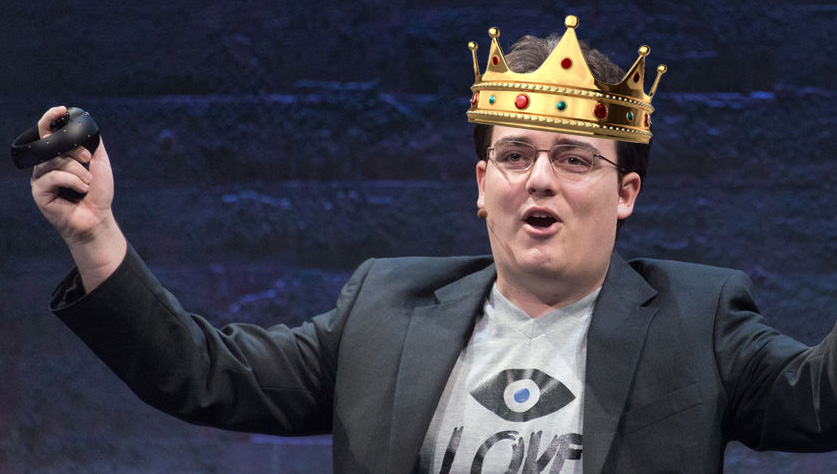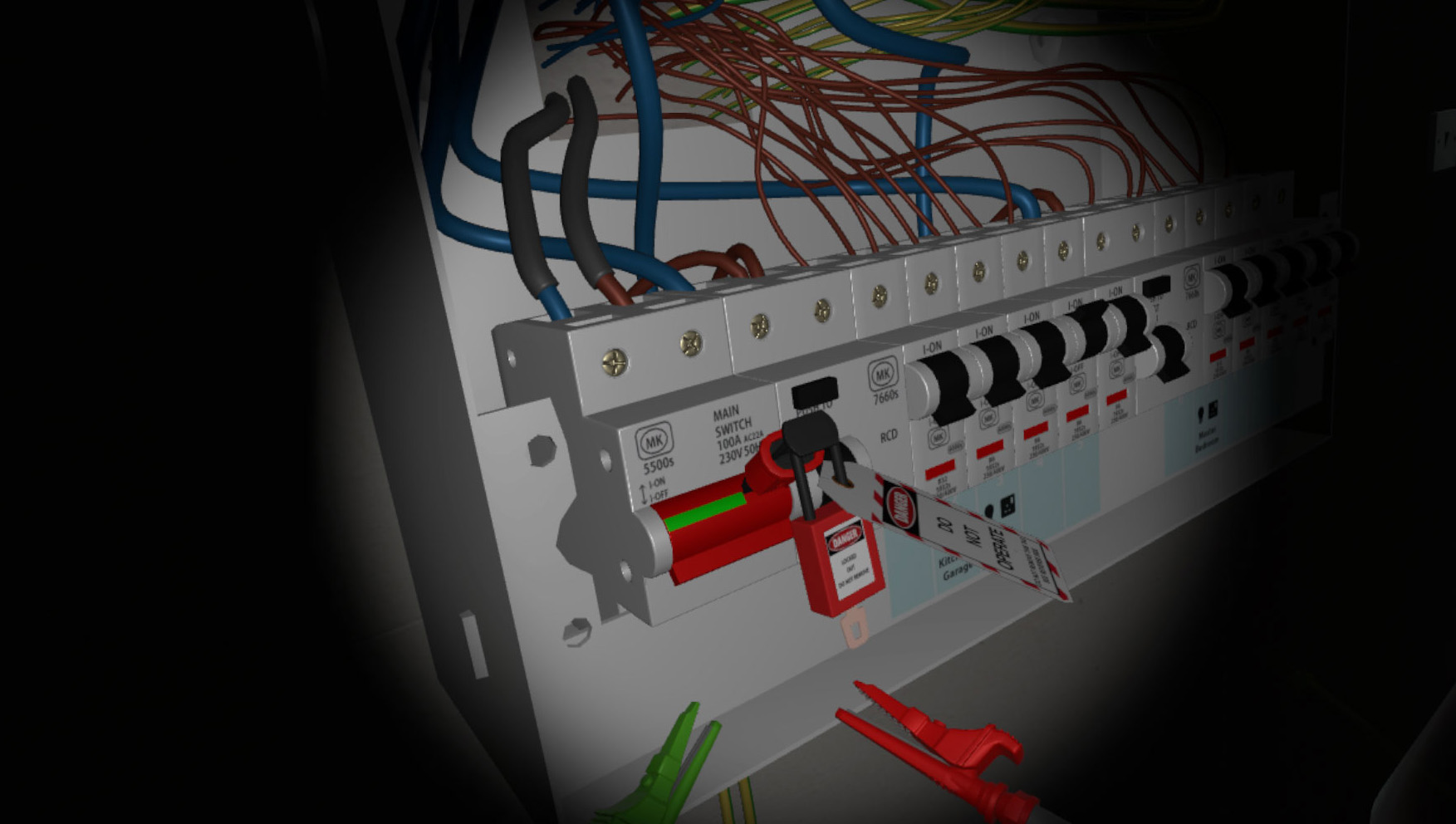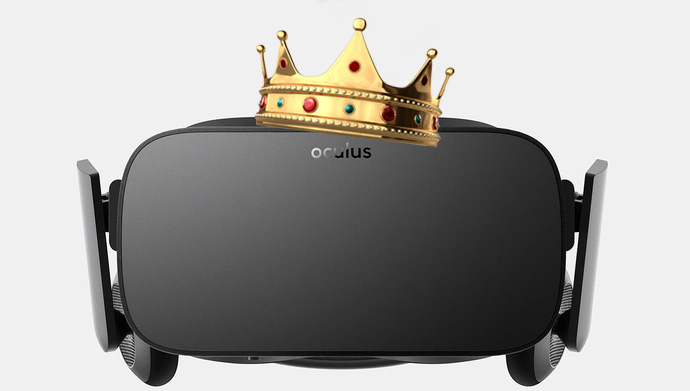A lot of recent articles have leapt to the worst of conclusions for the future of Virtual Reality, solely based on the poor position of Oculus Rift. Some articles go as far as to proclaim the “death of VR”, while more reputable sites, such as GamesIndustry.biz, while not having such clear clickbait style headlines, have been speculating that “high end VR may be a dead end” and speculates that mobile VR may be the way forward for the mainstream. I wanted to tackle this head on and discuss why the decline of Oculus does not equal the decline of console and PC based Virtual Reality overall.
Oculus was the first company to try and open up VR gaming to the masses and their Kickstarter was undoubtedly the genesis point of consumer based VR hardware. As anyone with any knowledge of how the tech industry usually operates, probably predicted from the start, this was going to be a mammoth undertaking . The first company to try and push a new technology is very rarely the company that makes a long term success of doing so. Trailblazers are often the first company to fade into obscurity. This will lead to a bumpy ride, even more so when you add a massive obstacle, such as Zenimax Media being awarded a $500 million decision when suing Oculus – for founder, Palmer Luckey, being found guilty of breaking a non-disclosure agreement and copyright infringement. Although it could still come, there is thankfully no sign of the additional obstacle of the potential injunction to halt sales of Oculus Rift headsets.

Whatever the exact reasons behind Palmer Luckey’s departure, the net result was a lot of negative press associated with the Oculus name and the company losing a major asset in one of the most recognizable names and faces in the VR industry. How much these factors played their part in influencing the market position of Oculus is unclear, but what is certain is that you do not want to be consistently third in a three horse race. Current figures suggest that PSVR has sold around 1.8* Million units, HTC Vive has sold over 650,000 units and poor old Oculus is lagging behind at just 383,000 – close to half the number sold by its nearest rival. (*Note that many other sources are quoting the figure of 1 million units that Sony announced earlier in the year).
Speculation regarding the future of Oculus is once again rampant as in America they have just introduced a massive temporary price reduction of $200 on a bundle including the headset, Touch controllers and selection of popular software. While a price reduction on its own is not always a bad sign, this is the second price reduction in fairly rapid succession, knocking the price almost in half from the original cost – this in conjunction with the knowledge of their market position has lead to speculation that this is signs that Oculus is struggling or even in its final death throes.
I have not seen the following discussed elsewhere but, the UK’s Senior Developer Strategist (or the face of Oculus in the UK) Callum Underwood, two days ago announced that he would be leaving Oculus to join Raw Fury Games. While I do not mean to be disparaging to Raw Fury or indie game studios in general, it does not seem like this would be a move he would make if there was ongoing confidence in Oculus as a company. This is yet another loss for Oculus as (apart from being a thoroughly nice bloke – full disclosure, he helped me when I purchased a DK2) Callum was also a positive force for VR in the UK and was seemingly doing a good job of representing Oculus in the UK. This may be even more of a loss given just how many indie studios in the UK are working on VR projects at this time and might be further signs that Oculus are cutting their losses – or at least as far as gaming is concerned. **UPDATE** Note that since this article was published a Twitter exchange took place in the thread of this article. In which user @Anticleric said to @DevRelCallum (i.e. Callum Underwood): “Told you they would accuse you of leaving a sinking ship :p” to which Callum replied “Yeah, not remotely a sinking ship.” – I am happy to be wrong although I still expect Callum’s departure to be a loss for Oculus and VR in general.
While it is easy to solely concentrate on the applications of VR in video games, many video game journalists and bloggers seem to all too easily forget that there are many other applications where VR use is steadily increasing – and it is these uses that actually give me increased confidence that VR is here to stay for the foreseeable future. Uses in medicine extend to both training and treatment. VR is being used in Architecture and property sales to put people in environments on the other side of the world to their clients or to put people inside buildings that haven’t been built yet. On the flipside, VR is being used in historical studies to put people in the middle of environments that have been inaccessible for centuries.
Facebook themselves stated that they bought Oculus with the uses beyond gaming in mind “This is just the start. After games, we’re going to make Oculus a platform for many other experiences,” – although I have to admit that I personally still struggle to see where this could be smoothly integrated in any useful way to a social media network.

VR, AR (Augmented Reality) and MR (Mixed Reality), UK based company make[REAL] have had relative success with games, Loco Dojo and the tangentially related Radial G, but they have also been heavily involved with the creation of training tools and educational software – making products to raise awareness of the origin of its farm produce for McDonald’s and making training scenarios for EDF Energy (as just two examples). This has now become a cornerstone of their business model and something I expect to see even more companies make use of in the future. With a slightly more glamourous example, American Football team, the Chicago Bears recently announced they are one of a handful of NFL teams that are using VR to train their rookie Quarterbacks.
Even without the support of other uses of VR, I still see video game based VR going from strength-to-strength outside of the problems facing Oculus. Another of the issues facing Oculus is that their competitors both have very strong actual and marketable advantages over Oculus. PSVR is a closed system with lower barriers to entry than your average Oculus setup (i.e. a PS4 is not only cheaper than a PC rig capable of running Oculus at full spec, but there are also over 60 million consoles already in consumer’s hands.) While Oculus may have a slight technical advantage over PSVR, this is negated by a number of factors including some nice technical tricks from the PSVR headset that helps reduce any negative effects of the screen-dooring effect and (something we are use to seeing the effect of across multi-console development) that developers will tend to develop similar software made with the lowest common denominator in mind. Oculus then loses out to HTC’s Vive fairly quickly when you start comparing technical stats and while Oculus may have a (now, much) cheaper price-point than the Vive, this seems to be more of a secondary consideration for the technically obsessed PC master race. The area in between PSVR and HTC Vive that Oculus Rift was operating in is getting smaller all the time.
It may have also actually been a mistake for Oculus Rift to have moved further into the domain of full room scale VR, as one of the selling points for me for PSVR was that I did not need a full room to dedicate solely to my VR setup. It also made the Oculus Rift more directly comparable with Vive and that was not an overly favourable comparison for Oculus.
HTC’s Vive have also recently started to add another video game string to its bow in the form of moving VR back into the arcades – for anyone not around the first time, the previous incarnation of VR only got as far as arcades. This may be viewed as a backwards step but I actually see this as positive reinforcement of something that I have long argued about VR games – that we do not want games that simply slap on a VR mode onto existing 50+ hour RPG’s but we are better off with newly formed arcade style experiences. (This is backed up by recently released figures that suggest the average playtime per session on a PSVR headset is 25 minutes.) I do not feel that I bought a replacement console when I purchased a PSVR headset but I did buy a replacement to the arcade – I have light gun games and I have flight and driving simulators that have been somewhat absent from the last few generations. All that said, one of the most exciting projects that HTC are developing for arcades is a multiplayer version of Mario Kart – and very pleased to hear that this may also be coming to London after debuting in Japan.
I also have to think that anyone that speculates that mobile VR is the way forward has never spent any considerable length of time playing VR using a mobile phone. There are two main reasons I see mobile VR being fundamentally limited both now and in the future – this first is heat, the second is phone calls. Basically, strapping something directly to your eyeballs that then heats up a large amount is an inherently bad idea that results in extended play sessions being impractical. Even more so for dinosaurs like me that actually use mobile phones for their original intended purpose of making phone calls. “Sorry, multiplayer chums! Have to go now, my eyes are ringing!” This also applies to many other uses for mobiles, but having your phone encased in a plastic box strapped to your face does not make it very accessible – general mobile games do not suffer from a similar problem as you can usually jump in and out of a game at will. My other concern as a gamer is that most games will not play as well without a controller and any controller released for this platform (judging on previous attempts) will likely feel half baked, developers won’t be able to rely on everyone having one and (especially as it cannot be used elsewhere) starts eroding the one main advantage the mobile VR has in being cheap and having minimal barriers to entry. I expect AR (Augmented Reality) to become the more dominant technology on mobiles rather than VR.
Despite their relatively bad position in the VR market, it would be foolish to entirely count Oculus out of the market going forward. Any company with the financial backing of Facebook’s bank accounts is going to be hard to ignore. It may be moving to the next step ahead of its rivals where Oculus makes a success. Just this afternoon, Oculus announced that they have plans to release a wireless version of its VR headset in 2018. They plan to sell this device for just $200 and will be free from being tethered to a mobile phone or PC. Mark Zuckerberg described it as a “sweet spot” between the Gear VR and Rift.
In conclusion, I think that overall the state of VR has never been healthier. The decline of Oculus Rift is due to a number of factors above and beyond it being an indicator of the overall health of the VR market. While it may be less than ideal that PlayStation has the console market all to itself and that Vive has an ever increasing share of the PC market, I still think they are close enough competitors to still keep the market competitive, while still having enough of a customer base to build on. Even if the VR industry loses its trailblazer, there is still a long road ahead for the rest of us to gradually teleport our way along.
Tags: Callum Underwood, Facebook, HTC Vive, make[real], Oculus, Oculus Rift, Palmer Luckey, PSVR, VR


